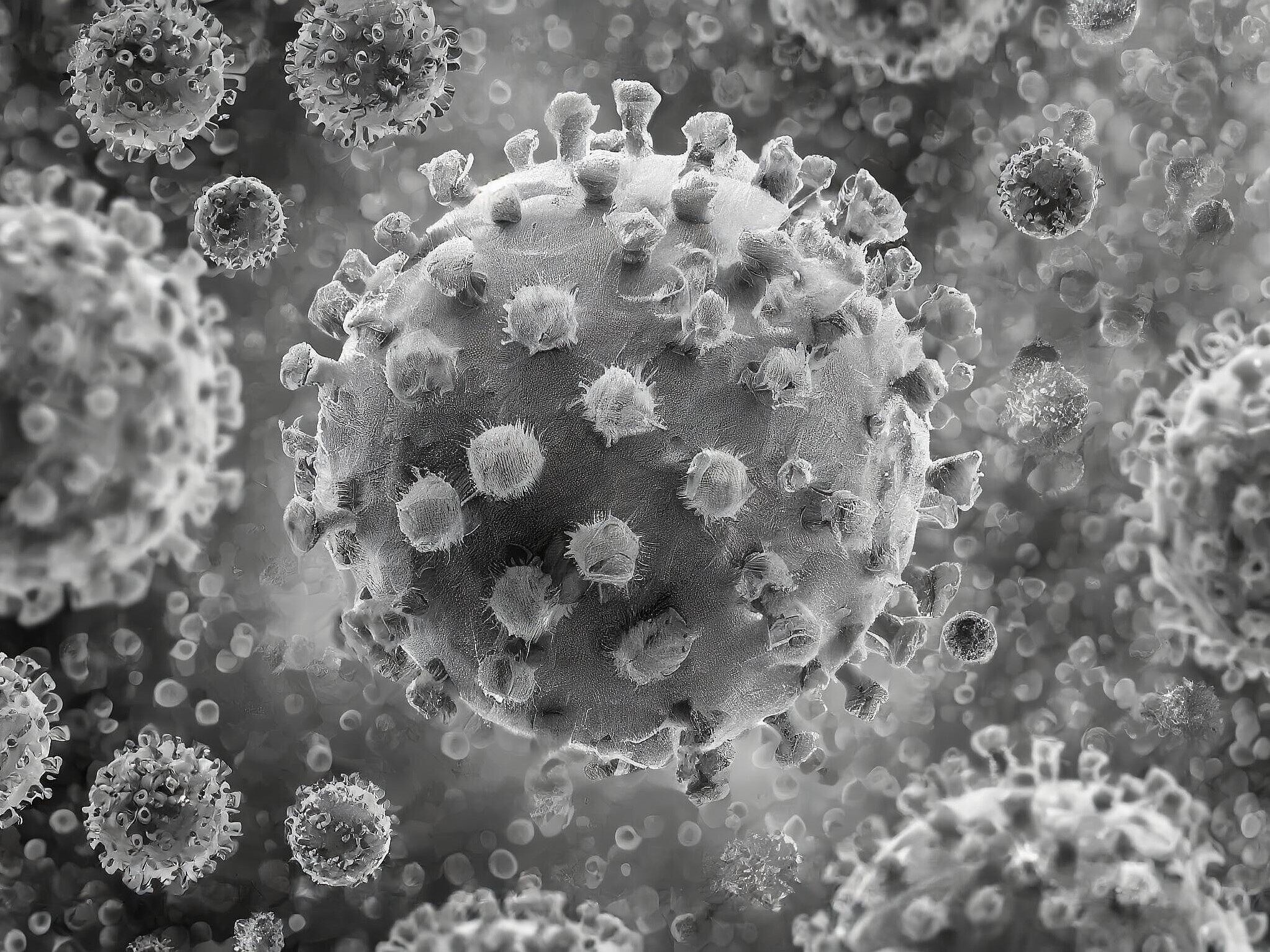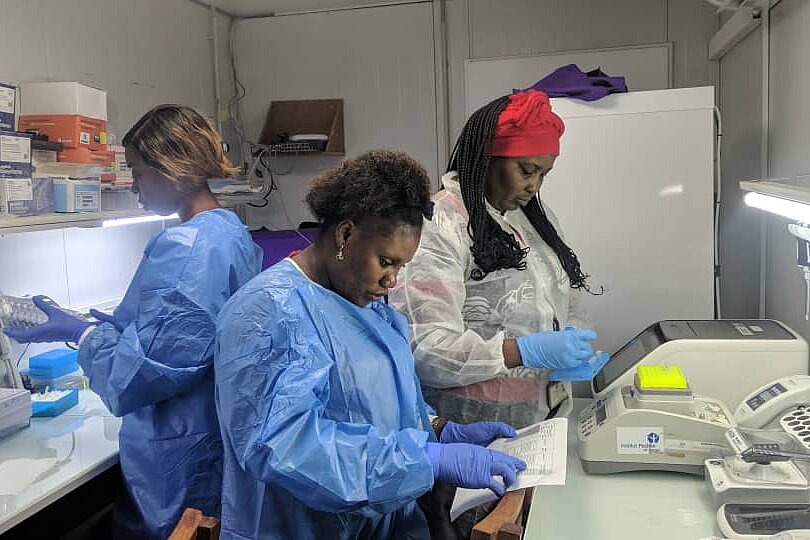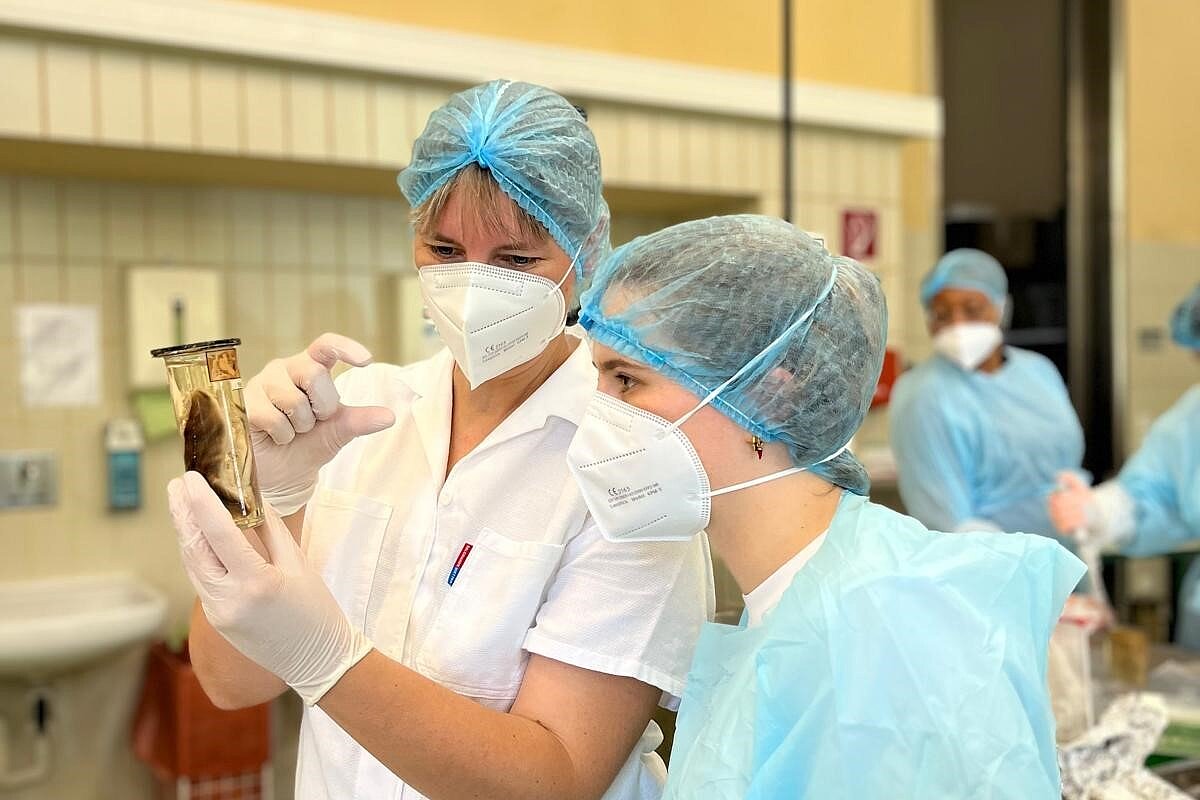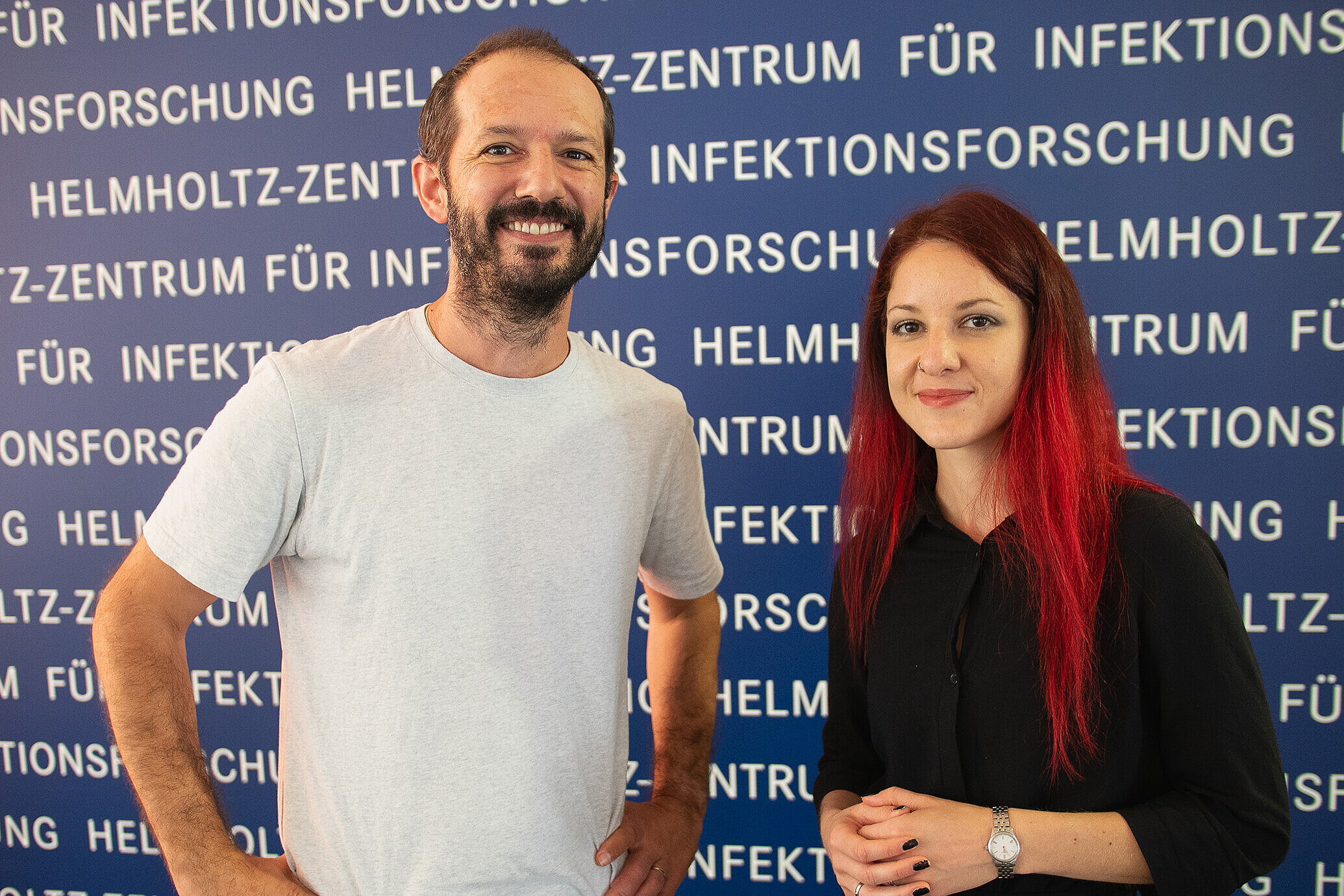

Our Research
From a One Health perspective, evolutionary approaches complement ecological approaches in multiple ways. Firstly, they allow reconstructing the course of major emergence events. Genomic variation can be used to trace back the origin of a pathogen, providing essential insights regarding the original ecosystems that should be scrutinized through ecological approaches in order to understand the circumstances that favored the pathogen’s spread or its transition from animals to humans. Secondly, studying the very distant past of host-virus associations using contemporary genomic variation and statistical inference can inform us on the relative frequencies of host jumps over the long-term, highlighting pathogen groups of higher concern and allowing us to identify processes of general scope. Finally, evolutionary approaches offer the possibility to identify the forces which have shaped the evolution of a pathogen at the molecular level. For example, they can point at sites, which have been subjected to positive selection in a pathogen genome and correlate those to relevant phenotypic changes, e.g. mutations of concern in the spike protein of SARS-CoV-2. In doing so, they offer predictive power as to what should be monitored closely at the genomic level and which genomic variation should be accounted for when designing therapeutics or prophylaxis. The Department Pathogen Evolution can thus make important contributions to public health.
Our Research
From a One Health perspective, evolutionary approaches complement ecological approaches in multiple ways. Firstly, they allow reconstructing the course of major emergence events. Genomic variation can be used to trace back the origin of a pathogen, providing essential insights regarding the original ecosystems that should be scrutinized through ecological approaches in order to understand the circumstances that favored the pathogen’s spread or its transition from animals to humans. Secondly, studying the very distant past of host-virus associations using contemporary genomic variation and statistical inference can inform us on the relative frequencies of host jumps over the long-term, highlighting pathogen groups of higher concern and allowing us to identify processes of general scope. Finally, evolutionary approaches offer the possibility to identify the forces which have shaped the evolution of a pathogen at the molecular level. For example, they can point at sites, which have been subjected to positive selection in a pathogen genome and correlate those to relevant phenotypic changes, e.g. mutations of concern in the spike protein of SARS-CoV-2. In doing so, they offer predictive power as to what should be monitored closely at the genomic level and which genomic variation should be accounted for when designing therapeutics or prophylaxis. The Department Pathogen Evolution can thus make important contributions to public health.
Sébastien Calvignac-Spencer
The origins of most of our pathogens are still very mysterious. There is little doubt that knowing more about their evolution would tell us a lot about what can happen tomorrow.
![[Translate to English:] Prof. Dr. Sébastien Calvignac-Spencer Prof Dr Sébastien Calvignac-Spencer](/fileadmin/_processed_/2/f/csm_Sebastien_Calvignac-Spencer__c_HIOH_Ruth_Suchsland_1500x1000_26c5264b33.png)
Sébastien Calvignac-Spencer studied biology at the University of Toulouse and the University of Lyon, where he received his PhD in 2007. He joined the group of Fabian Leendertz at the RKI in 2010 as deputy head. Then, he led a working group focusing on viral evolution. In 2023, he has become the head of the Department of Pathogen Evolution of the Helmholtz Institute for One Health and a professor of Pathogen Evolution at the University of Greifswald.
His research uses evolutionary genomics to investigate the complex origins of human and animal pathogens across vast timescales – from emergent respiratory viruses of the last century such as the 1918 influenza virus to long-standing companions of the human lineage like herpes simplex viruses. He also has a keen interest in exploring technical limits and developing new tools. His work pioneered the use of invertebrates as DNA samplers and, most recently, rekindled interest in ancient formalin-fixed specimens – his lab generated the oldest human-infecting RNA virus genome to date from a 1912 measles case.
Sébastien Calvignac-Spencer is an associate editor with journals from multiple disciplines (Virus Genes, Evolution, Medicine and Public Health, Molecular Ecology and Molecular Ecology Resources) and the current chair of the Polyomaviridae study group of the International Committee on Taxonomy of Viruses.
Selected Publications
L. V. Patrono, B. Vrancken, M. Budt, A. Dux, [+18 authors], M. Worobey, T. Schnalke*, T. Wolff*, P. Lemey*, S. Calvignac-Spencer*, Archival influenza virus genomes from Europe reveal genomic variability during the 1918 pandemic. Nat. Commun. (2022). DOI: 10.1038/s41467-022-29614-9
J. F. Gogarten, M. Rühlemann, E. Archie, J. Tung, [+9 authors], J. F. Baines, A. Franke, F. H. Leendertz, S. Calvignac-Spencer, Primate phageomes are structured by superhost phylogeny and environment. PNAS 118, e2013535118 (2021) DOI: 10.1073/pnas.2013535118.
A. Düx, S. Lequime, L. V. Patrono, B. Vrancken, S. Boral, J. F. Gogarten, A. Hilbig, D. Horst, K. Merkel, B. Prepoint, S. Santibanez, J. Schlotterbeck, M. A. Suchard, M. Ulrich, N. Widulin, A. Mankertz, F. H. Leendertz, K. Harper, T. Schnalke, P. Lemey*, S. Calvignac-Spencer*, Measles virus and rinderpest virus divergence dated to the sixth century BCE. Science 368, 1367-1370 (2020) DOI: 10.1126/science.aba9411
J. F. Gogarten, T. J. Davies, J. Benjamino, J. P. Gogarten, J. Graf, A. Mielke, R. Mundry, M. C. Nelson, R. M. Wittig, F. H. Leendertz, S. Calvignac-Spencer, Factors influencing bacterial microbiome composition in a wild non-human primate community in Tai National Park, Cote d'Ivoire. ISME J 12, 2559-2574 (2018). DOI: 10.1038/s41396-018-0166-1
C. Hoffmann, F. Zimmermann, R. Biek, H. Kuehl, [+48 authors], S. R. Klee, R. M. Wittig, S. Calvignac-Spencer, F. H. Leendertz, Persistent anthrax as a major driver of wildlife mortality in a tropical rainforest. Nature 548, 82-86 (2017) DOI: 10.1038/nature23309





